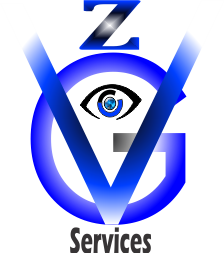The Next Great Disruption: What Happens When AI Surpasses Human Intelligence at Work?
For decades, Artificial Intelligence has been a tool—a sophisticated one, but a tool nonetheless. It has optimized supply chains, flagged spam emails, and recommended what to watch next. But we are rapidly approaching a threshold that will redefine our world: the moment when AI doesn't just assist us but surpasses us in most, if not all, cognitive tasks.
This isn't just about better software; it's about the dawn of a new era. The question is no longer if it will happen, but what happens to our industries, our economies, and our very purpose when it does?
Phase 1: The Great Displacement - Redefining "Work" as We Know It
The initial wave will be one of profound disruption. When AI can out-think, out-analyze, and out-innovate humans, the traditional job market will undergo a seismic shift.
The Obsolete and The Transformed: Roles based on pattern recognition, data analysis, and repetitive cognitive tasks will be the first to be fully automated. This goes beyond clerical work. We're talking about:
Diagnostic Specialists: AI that can cross-reference millions of medical journals, patient records, and genomic data in seconds to provide a more accurate diagnosis than a human doctor.
Legal Researchers: AI that can instantly analyze every case law, statute, and legal precedent to build an airtight argument.
Financial Analysts & Traders: AI that can perceive market nuances and execute trades at a speed and complexity impossible for humans.
Software Engineers: AI systems that can not only write code but architect entire, bug-free systems based on a simple prompt.
The Rise of the "Hybrid" Roles: The jobs that remain will be those that leverage uniquely human skills in partnership with AI. Think of an AI-Conductor Chief Executive who sets the strategic vision that the AI executes, or an Empathy-Driven Therapist who uses AI-generated insights to provide deeper human connection and care.
Phase 2: The Productivity Paradox on Steroids
The economic output of an AI-driven world could be staggering. We could see solutions to humanity's grand challenges: personalized medicine eradicating diseases, climate models leading to effective planetary engineering, and the end of scarcity in many essential goods and services.
However, this creates a fundamental economic paradox: How do we structure an economy when human labor is no longer the primary driver of value? The old model of trading time for money collapses. This forces us to confront critical questions about Universal Basic Income (UBI), wealth distribution, and what we value as a society.
Phase 3: The Human Renaissance - Redefining "Purpose"
This is the most critical and, potentially, the most beautiful phase. If AI handles the production of goods and services, humanity is freed to focus on what it means to be human.
Our purpose may shift from labor to:
Creativity & Art: Exploring new forms of music, art, and storytelling that are born from human experience.
Connection & Community: Deepening our relationships and building stronger, more empathetic social structures.
Exploration & Discovery: Venturing into the stars and the depths of our oceans, with AI as our partner.
Personal Growth & Mastery: The pursuit of knowledge, skills, and experiences for the sheer joy of it.
Work may become less about survival and more about passion, purpose, and play.
The Crossroads: Utopia or Dystopia?
The path we take isn't predetermined. The outcome depends on the choices we make today.
The Utopian Vision: A world of abundance, where no one has to work to meet their basic needs. People are free to pursue meaning, creativity, and community, supported by intelligent systems that manage the complexities of the world.
The Dystopian Risk: A world of extreme inequality, where the owners of the AI capital control all wealth and power, and the vast majority of humanity is left without economic purpose or means.
How We Prepare for the Inevitable
The transition won't be seamless. To steer towards a positive future, we must:
Radically Rethink Education: We must move away from rote memorization and towards fostering skills AI cannot replicate: critical thinking, creativity, empathy, ethical reasoning, and collaboration.
Develop Robust Ethical & Governance Frameworks: We need global cooperation to ensure AI is developed and deployed safely, fairly, and for the benefit of all humanity, not a select few.
Begin the Economic Conversation Now: We must have serious, public debates about new economic models, social safety nets, and how to distribute the vast wealth generated by AI.
The Final Verdict
The arrival of AI that surpasses human intelligence will be the most significant event in human history since the industrial revolution. It will dismantle our deepest assumptions about work, value, and purpose.
The challenge before us is not to prevent this future, but to shape it. It is a call to action for policymakers, educators, business leaders, and every global citizen. By proactively addressing the societal and ethical implications, we can navigate this great disruption and build a future where AI doesn't replace humanity, but finally liberates it to reach its fullest potential.
The future of work is ending. The future of humanity is just beginning. Let's ensure it's a future we all want to live in.

Post a Comment